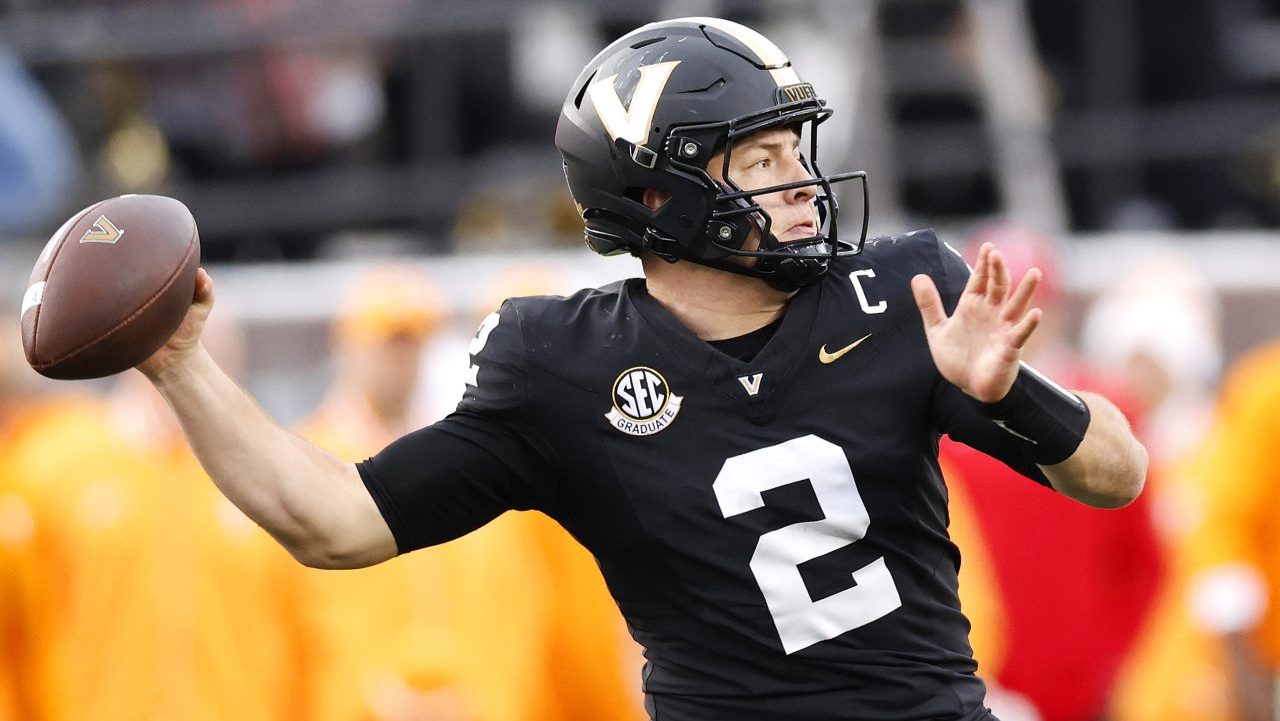
In a ruling with significant implications for NCAA athlete eligibility and NIL opportunities, a federal judge on Wednesday granted an injunction blocking the NCAA from ruling Vanderbilt quarterback and former junior college transfer Diego Pavia ineligible to compete next season.
The NCAA’s bylaws regulating who can play, Chief U.S. District Judge William L. Campbell, Jr. reasoned, are too restrictive in a new era where players can earn NIL money. The judge alluded to contemporary college athletes signing endorsement, sponsorship, influencing and other NIL deals and how NCAA rules regarding “who can enter the labor market for NCAA Division I football” are directly connected to athlete opportunities for “commercial transactions.”
Campbell’s language captured an increasingly prevalent viewpoint in a “post-Alston world” that the NCAA and its member institutions are like other businesses. When they conspire to restrain competition, their rules are judged like those adopted by other businesses, with courts applying ordinary (no longer deferential) antitrust scrutiny.
For decades, judges would review NCAA rules with deference given that those rules were ostensibly designed to promote educational opportunities and keep college sports distinguishable from pro sports. That world seems like it’s from a distant past.
Now, college players can sign lucrative NIL deals, enjoy recruitment from collectives and boosters who dangle what resemble pay-to-play offers, and transfer colleges multiple times to secure more money and playing time. As Campbell’s order vividly illustrates, it has become more difficult for the NCAA to credibly argue to judges that college sports is meaningfully different from pro sports—where the length of a career is not capped.
Pavia—who played at New Mexico Military Institute, a junior college, from 2020 to 2021—sued the NCAA last month and sought a preliminary injunction. He contends the NCAA and its member institutions, which are competing businesses, violate antitrust law by restraining college athlete eligibility in unreasonable ways. He argues he’ll lose NIL opportunities and development of football skills by losing a year of D-1 football.
At issue in the injunction is NCAA Bylaw 12.02.6, also known as the intercollegiate competition rule. The NCAA interprets the rule to include JUCO play despite the fact that junior colleges aren’t NCAA members and JUCO football lacks the quality of play and NIL opportunities found in D-1 NCAA college football. Pavia’s complaint also challenged the Five-Year Rule (NCAA Bylaw 12.8) and the Three-Year Transfer Limitation (NCAA Bylaw 14.3.3), but the NCAA acknowledged in court filings neither rule will preclude Pavia from playing football in the 2025-26 season.
Campbell’s order bluntly rejected several of the NCAA’s legal arguments. The NCAA cited cases from the 2000s where courts upheld NCAA eligibility requirements on grounds the requirements are “non-commercial in nature.” Campbell wasn’t persuaded, noting “those decisions were grounded in a pre-NIL world.” He added rules in those cases were “designed to keep commercial interests out of college sports” whereas in an NIL world, college athletes are unambiguously engaged in commercial transactions with the NCAA’s blessing.
Campbell also reasoned that, based on a review of Pavia’s evidence, it appears the “challenged eligibility rules harm competition.” The judge noted that former JUCO players lose the chance to enjoy the same amount of time in the NCAA D-1 labor market compared to players who only attend D-1 schools. That means former JUCO players lose out on “competitive advantages and NIL compensation” especially since D-1 offers “significant advantages over junior college football.” Campbell highlighted “more exposure, potentially better competition and coaching, and financial advantages due to the NIL opportunities disproportionately offered to Division I athletes” as key advantages.
Campbell was also troubled by what he saw as unequal treatment of former JUCO players compared to other student groups whose athletic competition doesn’t count against their NCAA clock. He mentioned the NCAA “does not start the eligibility clock for prep school student-athletes even though those students can earn credit toward a degree.” He also noted that while former JUCO players may be a little older—Pavia is 23—that shouldn’t matter since there are other D-1 players who are older on account of “military service, religious obligations, professional careers in other sports, or even independent athletic or academic work.”
The judge was similarly skeptical of the NCAA insisting it seeks a “natural and standard degree progression” through its eligibility rules. That objective, Campbell wrote, “appears pretextual” since NCAA rules “concerning the duration of eligibility have evolved over time.” He mentioned how years ago freshmen weren’t allowed to play varsity football and college athletes only had three seasons of varsity eligibility, but now they can play four seasons within five years and red shirt rules have been relaxed as well for football players.
The injunction granted by Campbell also blocks the NCAA from the chance to apply its restitution rule, which allows the NCAA to punish a school that uses a player who, after winning an injunction in court, ultimately loses in court and is thus ineligible. In order words, no school would be punished by enrolling Pavia even if the NCAA ultimately prevails in the litigation.
Monday’s ruling can be relied on by similarly situated players at other D-1 schools. The ruling is a victory for Pavia’s attorneys, Ryan Downton and Salvador M. Hernandez, who took on the multibillion-dollar NCAA and won—at least this round. The NCAA can appeal to the U.S. Court of Appeals for the Sixth Circuit.

